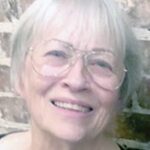Denali pretrial on June 6
Company accused of causing $25,000 in damage after runoff incident
By Sheila Harris sheilaharrisads@gmail.com
Denali Water Solutions, LLC (Denali), is the defendant in a civil suit initiated by plaintiff Collingsworth Land, LLC, who owns property near Southwest City in McDonald County.
Denali, registered as a foreign company with the State of Missouri, was acquired by TPG – a global alternative assets firm – in early 2020. Denali’s principal place of business is Russellville, Ark.
Collingsworth Land, LLC, owns and operates Collingsworth Farm for livestock production at 2124 Holly Road in McDonald County.
According to court documents, Collingsworth alleges that its land and livestock production were harmed by Denali’s negligence and trespass due to runoff from waste-activated sludge applied to neighboring land by Denali on or around Aug. 9, 2022.
The plaintiff’s petition alleges that the sludge was collected from Simmons Prepared Foods in Southwest City, then “improperly and illegally applied” to a property adjacent to, and upstream from, the Collingsworth property. A subsequent rain caused the sludge to flow from the neighboring property onto the Collingsworth property, as well as into the waterway conjoining the two properties, the petition states.
According to the petition, a representative of the Missouri Department of Natural Resources (DNR) conducted a preliminary site visit after being contacted around Aug. 11, 2022. A second representative continued the investigation. Both representatives confirmed that a discharge had occurred into the waterway as well as onto the Collingsworth property, the Collingsworth petition alleges.
As stated in an April 28, 2023, article in the Cassville Democrat, State Rep. Dirk Deaton, R-Noel, said that a Notice of Violation had been issued to Denali by the DNR in September for a runoff incident near the community of Southwest City in McDonald County.
“Thirty-six truckloads, or approximately 165,000 gallons, were land-applied to a five-acre area and entered Waters of The State (WOTS),” Deaton said, in reference to that incident.
The Cassville Democrat was unable to confirm whether the above-described runoff incident was the same one for which Collingsworth Land is bringing suit against Denali.
In reference to the civil case, Collingsworth alleges that, in an attempt to absorb and cover up the discharges onto its property, large quantities of lime were then poured onto various areas of the farm, which have left that grazing land barren and desolate.
Denali denies Collingsworth’s allegations.
The matter is working toward a demanded jury trial, with a pre-conference trial scheduled for 9 a.m., June 6, in McDonald County’s 40th Judicial Circuit Court in Pineville.
Collingsworth is suing for damages caused by trespass and negligence for an amount exceeding $25,000, to be proven at trial, plus court costs, attorneys’ fees and any other damages that may be proven at trial.
Another southwest Missouri resident, Rex Myer, said that he does not have enough evidence to win a court case, but based on his research, he believes that his loss of two cows and several aborted calves were the result of listeria bacteria in the silage he fed the cows.
“We ruled out other causes, and the symptoms were consistent with Listeriosis,” Myer said.
Myer said he prepared the silage from wet-baled hay grown on his property, property on which water had run off from neighboring upstream land where poultry waste residuals had been applied. He suspects that the water may have contained listeria bacteria from the waste residuals.
“When I began losing calves, then cows, I immediately quit feeding the other cows the silage, and I quit having the problem,” he said.
Listeriosis is a bacterial infection, usually contracted through food sources, which affects the brain, central nervous system and reproductive systems, and can result in encephalitis, meningitis, abortion and stillbirths. The disease is most commonly associated with silage with a low level of acidity, which can allow the listeria bacteria safe harbor.
Myer said the approximate financial loss represented by his dead cows and aborted calves amounts to around $10,000.
He emphasized that the reason for the loss of his cattle is speculative, although it is based on research. He is sharing his experience so that other livestock owners can be alert to the possibility of similar scenarios of their own.
“I’m not a tree-hugger by any means,” Myer said. “But, I believe that people should do what’s right.”
After June 30, the Missouri Fertilizer Control Board (MoFCB) will no longer issue fertilizer permits to companies that contract with industries to dispose of their waste residuals.
The reason, MoFCB director Steve Taylor said, “boils down to the market value of the residuals.”
Taylor said when companies are offering their process-waste material to landowner for free, it means the material has no significant market value.
“The general intent of the Missouri fertilizer law is to provide consumer protection through truth in labeling and to protect fertilizer customers from experiencing significant economic harm due to the purchase of a fertilizer product that is deficient in essential plant nutrients,” Taylor said. “Since this material is free and has no significant market value, the regulations and requirements of the Missouri fertilizer law do not apply, so a fertilizer permit is not required.”
Taylor said that with the change in the permitting process, Denali and other companies that land-apply processing-waste residuals will fall under the purview of the DNR after June 30.
Heather Peters, Water Pollution Control Branch Chief with the Watershed Protection Program of the MoDNR said the [DNR] has determined that continued land application of wastewater, sludges, biosolids and other process wastes that were previously licensed as fertilizers by MoFCB will now require a land application permit [from the DNR].
“We have two primary permitting options,” Peters said. “[The first is] a general permit for land application of food processing wastewater or [the second is] a site-specific permit.”
The decision did not require a change in rule or policy, Peters said. With the removal of the permit exemption, the DNR’s established permitting rules and procedures will apply.
Heathers said the DNR will soon be reaching out to all of those fertilizer exemptions on file to confirm that they either:
• Continue to maintain a MoFCB license as of July 1
• Will be submitting an application for continued land application of the fertilizer material(s)
• Are covered under another permit (e.g. the source facility’s Missouri State Operating permit) • Will be ceasing land application of the material(s).
Peters said representatives of Denali have indicated that they intend to apply for site-specific permits.
“At this time, I expect that we will be drafting for consideration a site-specific permit for each storage facility and the land application activities; so likely four permits, but we will have to consider how to permit the land application activities and locations,” Peters said.
Peters added that her department will be meeting with representatives of Denali soon to discuss the permit application process for their material storage and land application activities.
Peters added that it typically requires 120-180 days to draft and render a decision on a permit application, but it will require more time if extensive stakeholder engagement is needed.
“We anticipate significant stakeholder interest and engagement on these permit applications, and therefore do not expect to have the permits issued by July 1,” Peters said. “The Department is considering options to address the unanticipated gap in coverage while protecting the environment and gathering data to inform the Department’s permit evaluation process.
In the meantime, according to Deaton, Notices of Violation have been issued by the DNR for the September 2022 runoff incident in McDonald County, as well as for one that occurred March 1, 2023, on the Newton/ McDonald County line northwest of the Gideon Lagoon, near Longview.
Peters said that because the DNR’s Water Pollution Control Branch, Compliance and Enforcement Section has an active enforcement case against Denali Water Solutions, she cannot comment on the details of an ongoing enforcement case.
Whether the civil case is to be tried before a jury in McDonald County court and set a precedent remains to be seen.




